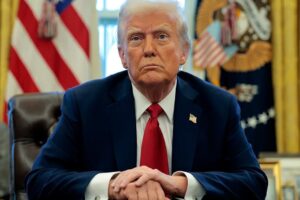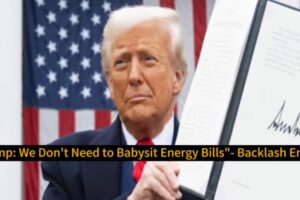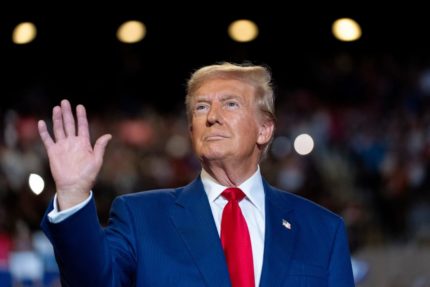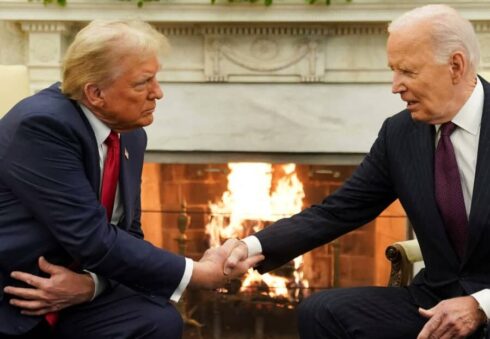President-elect Donald Trump and Vice President-elect JD Vance have significantly escalated tensions on Capitol Hill, issuing strong objections to a proposed federal funding bill. The bill, negotiated by Republican House Speaker Mike Johnson, aimed to fund the government until March 14, just days before the looming shutdown deadline. However, Donald Trump and Vance lambasted the deal, citing its inclusion of Democratic priorities and demanding that a debt ceiling increase be tied to any temporary funding measures.
In a joint statement, Donald Trump and Vance expressed their dissatisfaction: “Republicans want to support our farmers, pay for disaster relief, and set our country up for success in 2025. The only way to do that is with a temporary funding bill WITHOUT DEMOCRAT GIVEAWAYS combined with an increase in the debt ceiling. Anything else is a betrayal of our country.” Their remarks undermined support for the bill among GOP lawmakers, throwing Congress into disarray as the clock ticks closer to a shutdown.
Scalise Announces Scrapping of Funding Plan
In response to Donald Trump’s criticisms, House Majority Leader Steve Scalise confirmed late Wednesday that the proposed funding plan had been officially scrapped. Scalise, who had not yet spoken directly with Trump, revealed that Republicans were working on a new approach to address Trump’s demand for linking government funding to a debt ceiling increase.
Speaking to reporters, Scalise stated, “We’re going to continue to work through the night, through the morning to get an agreement we can bring to the floor. We’re not there yet.” He expressed optimism about resolving the impasse, but admitted the party was far from consensus. The unexpected opposition from Trump has thrown a wrench into the legislative process, with GOP lawmakers scrambling to craft a deal that aligns with Trump’s vision while averting a shutdown.
Republican Infighting Intensifies Amid Donald Trump’s Opposition
Donald Trump’s opposition to the spending deal has not only disrupted the legislative process but also raised concerns about House Speaker Mike Johnson’s political standing. Sources revealed that Donald Trump privately trashed the spending agreement in conversations throughout the day, triggering a backlash among GOP lawmakers. The move has been described by Republicans as the final blow to Johnson’s proposal.
Adding to the uncertainty, questions have emerged about whether Trump will continue to back Johnson in his upcoming speaker race, set to occur in just over two weeks. Johnson’s leadership has been thrust into the spotlight, with some Republicans expressing doubts about his ability to navigate the party through this turbulent period.
Shutdown Risks Mount as GOP Seeks Resolution
With only days remaining before the government shutdown deadline, Republican lawmakers are under immense pressure to deliver a viable funding solution. The GOP’s efforts to reconcile Trump’s demands with legislative realities have so far proven challenging, as divisions within the party deepen.
As negotiations continue, the stakes remain high. A government shutdown would not only disrupt federal operations but could also have significant political ramifications for the Republican Party as they prepare to assume control of the White House and Congress in January. Whether Trump’s last-minute demands will yield a resolution or exacerbate the crisis remains to be seen, but one thing is clear: the path forward is fraught with uncertainty.
Historical Context and Political Implications
This looming shutdown adds to a historical pattern of U.S. government funding crises. Over the past five decades, there have been 21 shutdowns, including a record 35-day closure during Trump’s first term. The current standoff illustrates deep divisions within the Republican Party and a growing struggle to navigate bipartisan agreements.
While Trump’s stance has rallied conservative lawmakers and voters, it has also exposed fractures within GOP leadership. Congressman Scalise confirmed the absence of a new agreement, signaling prolonged uncertainty. As negotiations continue, the potential for widespread disruption underscores the pressing need for a viable solution before federal offices begin shuttering this weekend.
By stoking opposition to the bill, Trump and Musk have reshaped the narrative surrounding government spending, casting doubt on Congress’s ability to avert another costly shutdown.














